Dimensions of the indoor unit of the air conditioner
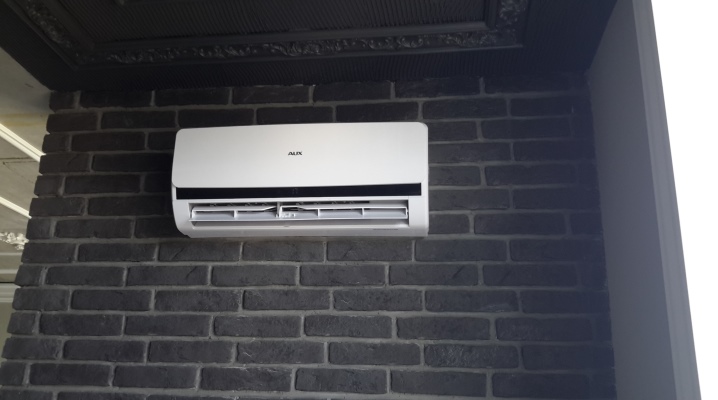
Putting the indoor unit of the air conditioner is not just a fit into the interior of the room next to the chest of drawers or above the desk near the window. Often, the installation of an air conditioner is coordinated with the changes planned in the event of a complete redevelopment of an existing house or apartment or in a newly commissioned new building.
Relationship between power and unit dimensions
The landlord or the owner of the work space knows for sure which air conditioner model will suit him in his particular case... The choice is made not only by the operating characteristics of the air conditioner (power, number of modes and other general and auxiliary functions), but also by the dimensions that the outdoor and indoor unit should have.
Almost all household owners prefer the split system for its energy efficiency, high cold efficiency and the variety of split types available on the microclimate technology market.
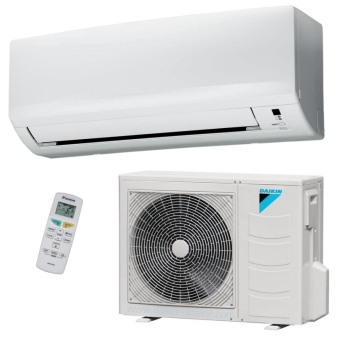
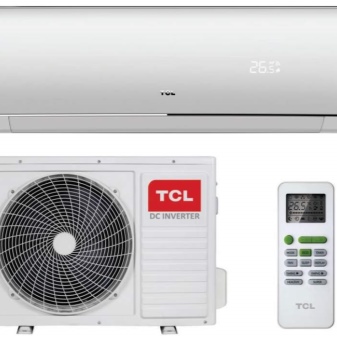
The size of the indoor and outdoor units is the main factor affecting the cooling capacity. In a small indoor unit, it is unlikely that the internal circuit through which the refrigerant acquiring a gas aggregate state circulates will be large enough, in order to give, say, the same 15 kilowatts of power for the heat taken from the room. In the bedroom, up to 25 m2 of cooling power of 2.7 kW is enough to lower the temperature in an hour, for example, from 32 to 23 degrees.
However, in a small range of allocated cooling power - for example, 2.7 and 3 kW - for models of air conditioners of the same line, the body of the indoor unit may turn out to be the same. This is due to the margin of internal space allowing a slightly longer coil to be accommodated. In some cases an increase in cold power is also achieved due to a slightly more powerful cylindrical propeller engine, which blows the cold just generated by the circuit into the room... But the "revolving speed" of the fan, overclocked at full power, introduces additional noise in the cooled room. The diameter of the pipes of the freon line remains unchanged.
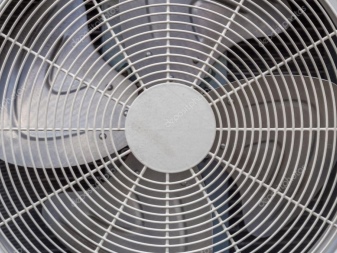
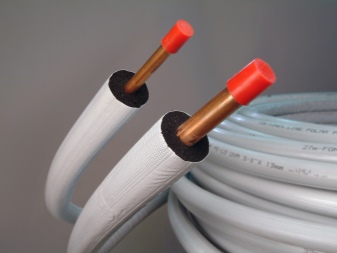
Indoor unit dimensions
The typical length of a split-system indoor unit is on average three quarters of a meter. Rarity - a block with a length of 0.9 m. Installers often measure an average length of 77 cm. The height of the block is 25-30 cm, an average value of 27 cm is often used. The depth (from the front panel to the wall) is 17-24 cm. The depth is no longer so important here. Practical (installation) length and height - 77x27 cm, which fits into the requirements for apartments.
A compact ceiling module, often having a "flattened" shape on top, has a square design with a side from 50 cm to 1 m. If the unit is duct, then its main part is hidden in the ventilation duct. For column modules installed on the floor, the height is approximately 1-1.5 m, and the width and depth are the same as for small single-chamber refrigerators, for example, 70x80 cm. Because of this, columnar modules are not placed in small rooms.
Whether it is a large-medium or small-sized module, its placement principle may not change, especially for models of the same line. The high capacity split air conditioner does not have a too small indoor unit. Conversely, a low-power split system does not need a roomy block too large.
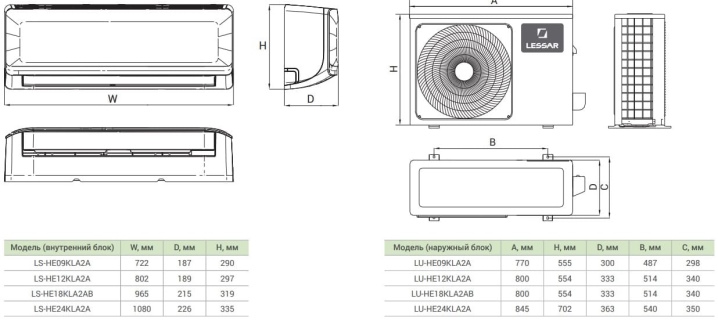
Location
The indoor unit is located so that there should be no obstacles to the intake of heated air from the room and its delivery in a cooled form. For not quite standard or limited spaces, the size and location of the wall, floor or ceiling unit should not be to the detriment of the people who use such a room. There have been cases when, due to the peculiarities of the architecture of the building, the ceiling block was placed on the wall or vice versa. The operation of the coolers does not depend on how it will be located, the main thing is not to flood the electronics of the unit with water condensate formed during operation.
From time to time, specific firms have their own approaches to the placement of split-system room modules. So, Carrier presented a vertical unit with a side outlet of cooled air. Gree offered corner air conditioners.
Such solutions are popular with owners of small one-room apartments, constrained by a lack of space.
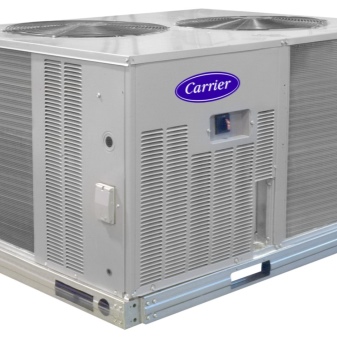
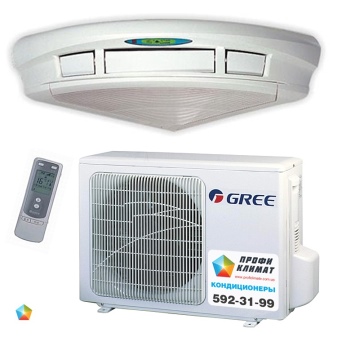
Examples of finished sizes
So, the company Gree the depth of the room module is only 18 cm.The length and width here vary, respectively, in the range of 70-120 and 24-32 cm.
Have Mitsubishi air conditioners have the following dimensions: 110-130x30-32x30 cm. Such dimensions are taken for a reason: for high-quality blowing, the radius of a cylindrical fan should be at least a few centimeters, and its length should be at least 45 cm.
Chinese air conditioners from the company Ballu - the smallest systems. The BSWI-09HN1 model has a block with dimensions of 70 × 28.5 × 18.8 cm. The BSWI-12HN1 model is similar, it differs only in a slightly larger external block, the size of which does not really matter for the internal living space.
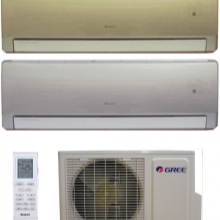
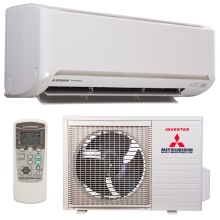
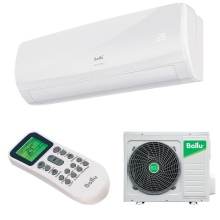
But the farthest advanced was the company Supra: its US410-07HA model has an indoor unit size of 68x25x18 cm.Pioneer is a little behind: the KFR-20-IW model is 68x26.5x19 cm.Finally, Zanussi also succeeded: the ZACS-07 HPR model has an internal block with dimensions of 70 × 28.5 × 18.8 cm.
A further reduction in the size of the outdoor and indoor units could lead to a decrease in efficiency due to insufficient overall power. No manufacturer has yet presented a rectangular indoor unit whose length would be no more than 60 cm.
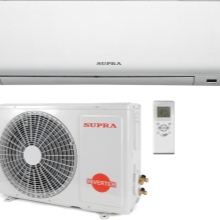
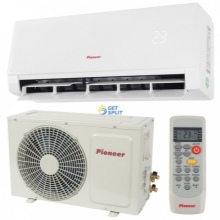
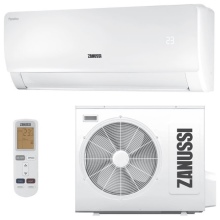
Conclusion
Whatever the size of the indoor unit, you need to choose one that does not take away a significant part of the space from the overall cubic capacity of your room or study with its large dimensions. Also, the block should not be too noisy. And it is desirable that it organically fit into the design of the room.
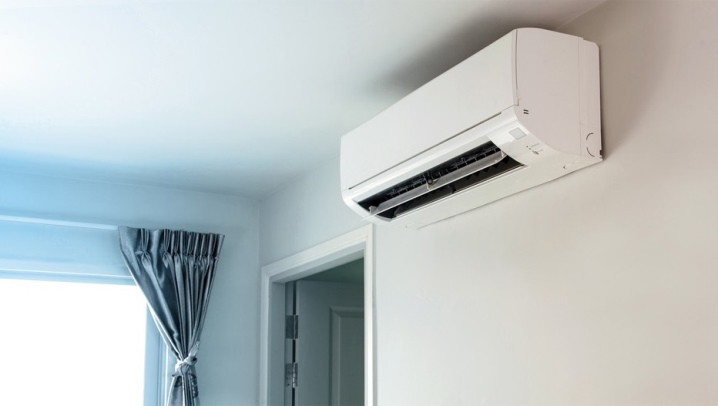
For the installation of the air conditioner, see below.













The comment was sent successfully.